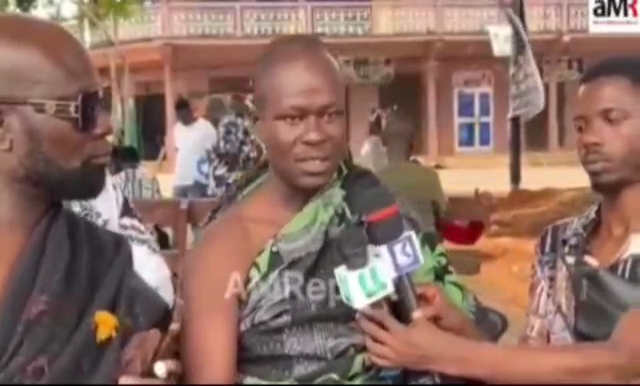The appointment of Yakubu Issifu, a Northerner, as the Municipal Chief Executive (MCE) for Asante Mampong has ignited a firestorm of controversy within the local community and the ranks of the National Democratic Congress (NDC). Chiefs, elders, and party supporters have voiced their vehement opposition to the decision, appealing to President John Dramani Mahama for its immediate reversal. Their discontent stems from a confluence of factors, including a perceived disregard for local sentiment, unresolved tensions over past appointments, and allegations of pre-determined outcomes that sidelined qualified local candidates. The situation has escalated into open protests, with party offices vandalized and property destroyed, underscoring the deep-seated frustration and potential for further unrest.
At the heart of the dispute lies a fundamental clash between the principles of inclusivity and local representation. While proponents of Mr. Issifu’s appointment might argue that it reflects a broader national vision and promotes diversity in leadership, the aggrieved parties in Asante Mampong contend that it disregards the community’s desire for local leadership. They argue that an MCE intimately familiar with the area’s unique challenges and cultural nuances is crucial for effective governance and development. This sentiment is amplified by the historical context of previous appointments, where similar controversies have erupted, leaving lingering resentment and distrust. The unresolved nature of these past grievances has created a fertile ground for the current unrest, fueling perceptions of marginalization and disrespect towards the local population.
The elders of Asante Mampong have expressed profound disappointment with the process leading to Mr. Issifu’s appointment, characterizing it as disrespectful and dismissive of the community’s aspirations. They point to the alleged pre-selection of Esther Dwomoh, which, though unconfirmed, fueled speculation and heightened anxieties. Further compounding the issue is the claim that three local candidates, including the 2024 Parliamentary Candidate, were shortlisted after vetting, leading to the expectation that one of them would be chosen. The ultimate selection of an outsider, in their view, not only negates the vetting process but also validates the concerns of those who believe the outcome was predetermined. This perceived lack of transparency and disregard for due process has deepened the sense of betrayal and resentment among the local population.
The elders have also raised concerns about the potential for escalating tensions within the community. They cite past instances of indiscipline by NDC supporters regarding the appointment of an Asante MCE, highlighting the volatile nature of the issue and the risk of further unrest if Mr. Issifu’s appointment is maintained. Their apprehension is further fueled by reports of some NDC members openly declaring their refusal to accept an Asante as MCE, indicating deep-seated divisions within the party itself. These internal fractures, coupled with the broader community’s discontent, threaten to destabilize the region and undermine the NDC’s standing within Asante Mampong. The elders’ plea for reconsideration is not merely a matter of local preference but a call for peace and stability, urging the President to recognize the potential for escalating conflict and act accordingly.
The vandalism and arson at the NDC party office underscore the gravity of the situation and the escalating frustration within the community. The aggrieved youth, motivated by rumors of Esther Dwomoh’s nomination, acted on their perceived injustice, venting their anger through destructive acts. This incident serves as a stark warning of the potential for further unrest if the underlying issues remain unaddressed. The destruction of party property signifies not just a rejection of the MCE appointment but also a broader disillusionment with the party’s responsiveness to local concerns. It represents a breakdown of trust and communication, highlighting the urgent need for dialogue and reconciliation to prevent further escalation.
The situation in Asante Mampong presents a complex challenge for President Mahama and the NDC. Balancing the principles of national unity and local representation requires careful consideration and sensitivity to the historical and cultural context. While the appointment of Mr. Issifu may have been intended to foster inclusivity, it has inadvertently ignited a firestorm of controversy, exposing deep-seated divisions within the community and the party. The President faces the difficult task of addressing the legitimate concerns of the Asante Mampong people while upholding the principles of fairness and due process. A swift and decisive response is crucial to quell the unrest, restore trust, and prevent the situation from escalating further. This response must involve genuine dialogue with the community, acknowledging their grievances, and exploring pathways towards a resolution that respects both local aspirations and national interests. Failure to address the root causes of the discontent risks prolonging the conflict and further eroding the NDC’s support base in the region.


